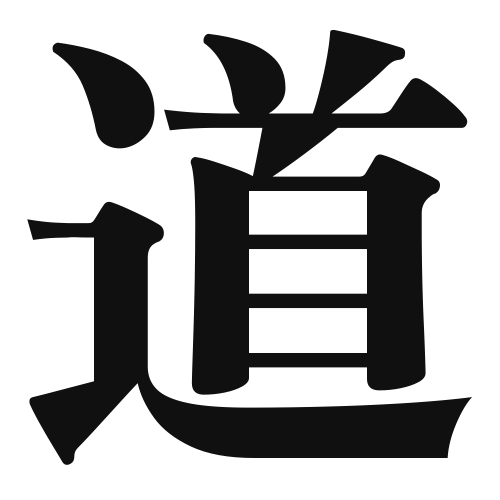1. Overview of Meaning
The kanji “道” (pronounced “dō” in Japanese) primarily means “way,” “path,” or “road.” It can also refer to a method or principle, often in a philosophical or spiritual context.
2. Formation and Radical
Formation of the Kanji: The kanji “道” is a combination of two components: the radical “辶” (which relates to movement or walking) and the character “首” (meaning “head” or “chief”). This combination suggests a path or way that one follows.
Radical: The radical of “道” is “辶,” which indicates that it is related to movement or travel.
3. Examples of Usage
Common Words and Phrases: Some frequently used words that include “道” are “道場” (dōjō – training hall), “道理” (dōri – reason or principle), and “道徳” (dōtoku – morality).
Example Sentences in Daily Conversation:
- この道をまっすぐ行くと、駅があります。 (If you go straight down this road, you’ll find the station.)
- 彼は自分の道を見つけるために努力しています。 (He is working hard to find his own way.)
4. Synonyms and Antonyms
Similar Kanji: A similar kanji is “路” (ro), which also means “road” or “path,” but it is often used in a more physical sense, such as a street or route.
Antonyms: An antonym could be “迷” (mei), which means “to lose one’s way” or “to be lost,” indicating a lack of direction.
5. Cultural and Historical Background
Relation to Japanese Culture: The concept of “道” is deeply embedded in Japanese culture, often associated with various disciplines such as martial arts (e.g., “剣道” – kendo) and traditional arts (e.g., “茶道” – tea ceremony). It signifies a way of life or a path of personal development.
Proverbs and Idioms: One common proverb is “道は開ける” (Michi wa hirakeru), which means “the way will open,” suggesting that perseverance will lead to success.
